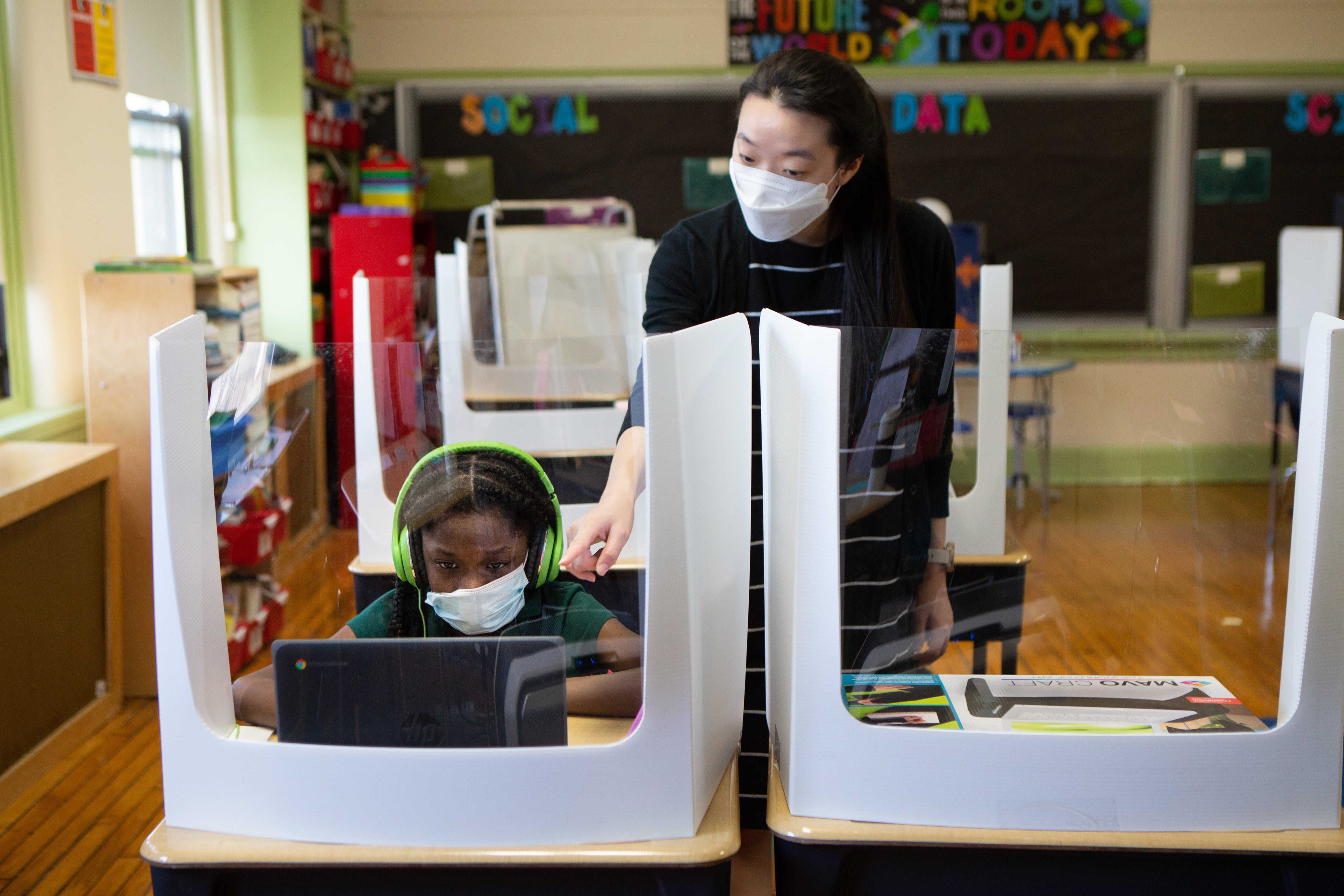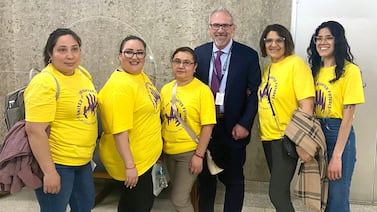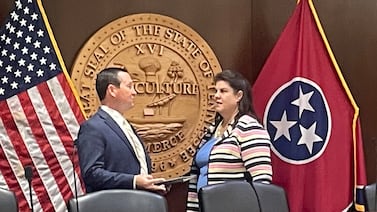About a decade ago, Essex County College of New Jersey restructured its education program to be more hands-on and geared toward the strengths of its students, who are predominantly Black and Latino and from underserved communities.
The community college in Newark pushed its students who aspired to earn bachelor’s degrees and become teachers to attain a 3.8 grade point average and take the Praxis, a test for a license and certificate to teach in New Jersey.
The approach seems to be working.
Of about 26 teacher prep programs in the state, the two-year college had the fourth-highest pass rate among test-takers of color — 40% of them passed the licensure exam on their first attempt, according to new data released this week. That’s well above the average pass rate for first-time test-takers across the state: 34%.
Though teacher prep programs are most common in four-year institutions and most of the data highlights the pass rate of students from those programs, students from two-year programs can also take the licensure exams.
“Our courses are tailored for students of color and underprivileged backgrounds so that they can relate their personal experiences to the material,” said Mamie Bridgeforth, chair of Essex County College’s division of social sciences. “I think all of that, and the fact that our program is grounded in liberal arts, has contributed highly to our passing rate.”
Many aspiring teachers in the state and nationally don’t pass their license exam on the first attempt, according to the data published by the National Council on Teacher Quality, a think tank that advocates for higher teacher preparation standards. It can take several tries and hundreds of dollars in exam fees for some test-takers to earn their teaching license, the group says.
Nationally, 45% of all aspiring teachers pass on their first attempt, the data shows.
But critics of the study argue that focusing on the pass rate on the first attempt is not a valid indicator of the quality of a teacher prep program or a good predictor of classroom performance.
Many factors can contribute to failing the standardized test on the first go-around, such as test anxiety, a stressful environment, or the exam’s cultural bias, which can lead to disparate test outcomes, said Jennifer Robinson, executive director at the Center for Pedagogy at Montclair State University.
“There are many variables over which the teacher preparation program has little control, such as when the candidate takes the test and how much preparation time was taken before the test was taken,” Robinson said.
The pass-rate study is based on data collected in 38 states and Washington, D.C., from 2015 to 2018, said Hannah Putman, managing director of research and lead author on the study. The study follows a report the group published in 2013 that ranked teacher prep programs and that critics said lacked meaningful analysis.
Some of the information in the report released this week came directly from states through public records requests. Other data points were provided by the testing companies, such as the Educational Testing Service, or ETS, which administers the Praxis exam, Putman said.
For test takers of color in New Jersey, the pass rate on their first attempt ranged from 0% to 56%, depending on which institution they attended, the report shows. For example, none of the 11 students of color from Thomas Edison State University nor the 19 students of color from Caldwell University who took the license exam passed on their first attempt, according to the data. However, 56% of the 102 students of color from The College of New Jersey and 54% of the 59 students of color from Rutgers University-New Brunswick passed on their first attempts, the report said.
Tara Kent, associate dean and director of undergraduate studies at Thomas Edison State University, said that the university doesn’t offer a teacher prep program to train students taking the licensure exam that’s at the center of this study. The study notes that most states, including New Jersey, allow anyone to take a licensure test and individuals who are not enrolled in a teacher prep program may report an affiliation with an institution.
“We think that this data really should be a compass to guide further investigation,” Putman said. “This really points to the need for more support from preparation programs to really do the work that needs to be done to help make up for these inequities in education.”
On the other hand, this data could hurt teacher preparation programs that actively address barriers to entry for diverse teacher candidates, said Robinson, an expert on the recruitment and retention of education students and teachers of color.
“We do believe the reporting of these scores could stigmatize institutions that serve first-generation and underserved college students,” said Robinson, an executive committee member of the New Jersey Association of Colleges for Teacher Education.
Bridgeforth noted that many of her students aren’t comfortable with standardized testing, so professors in her program begin discussing the license exam process from the first week of classes in the two-year education program.
“It’s a lot of hand-holding in the beginning,” Bridgeforth said. “How do you take what they bring to the table and use their life experiences when talking about theories? Teaching in our urban community is very challenging when many of your aspiring teachers are dealing with homelessness and other issues. It’s not easy, but at the same time, you have to have standards.”
Editor’s Note: This article was updated to include a point from Thomas Edison State University that the institution does not offer a teacher prep program. The update also mentions the study’s use of pass-rate data for individuals taking the licensure exam who are not enrolled in a teacher prep program.








